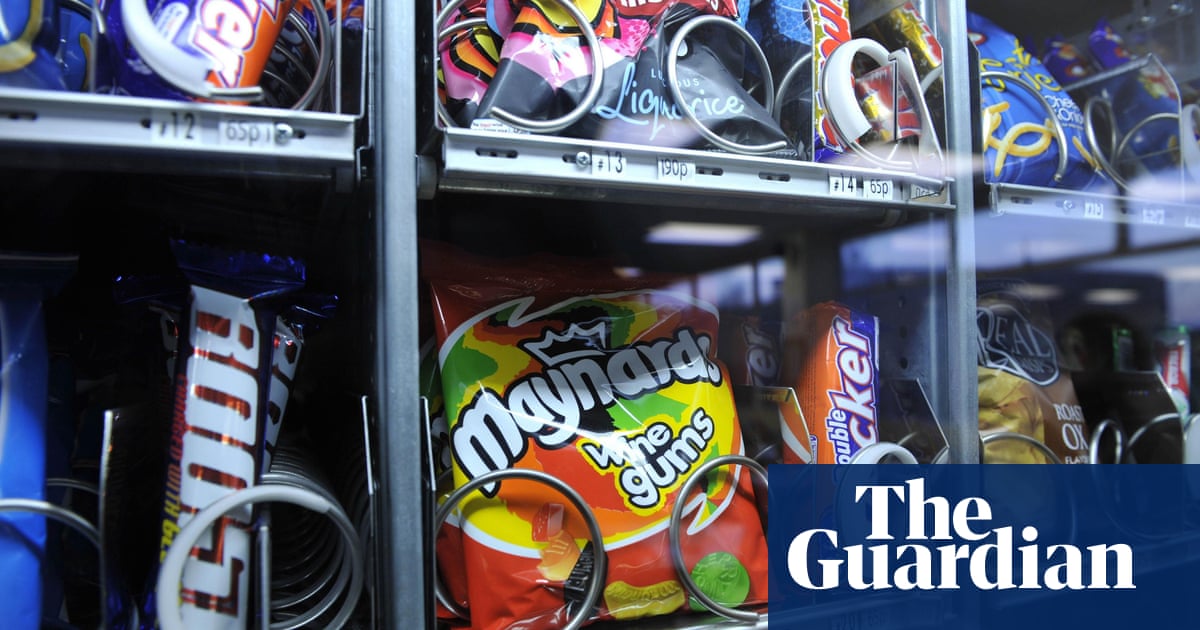
The government will fail in its mission to halve childhood obesity in England by 2030, Whitehall’s spending watchdog warns in a new report.
Progress towards that goal has been “slow” and is hampered by a lack of evidence that the policies being pursued will work, according to a report by the National Audit Office published on Wednesday.
It also criticises ministers for not delivering on key pledges made in recent years to tackle dangerous weight levels in under-18s, such as banning them from buying energy drinks.
“Progress with the childhood obesity programme has been slow and many commitments are not yet in place,” said Gareth Davies, the head of the NAO.
Although Boris Johnson unveiled a new obesity strategy in July, the government would “need to follow through with more urgency, commitment and cohesion if it is to address this severe risk to people’s health”, he added.
Childhood obesity has been worsening for years. In 2018-19 almost a 10th of four- and five-year-olds and a fifth of 10- and 11-year-olds in England were obese, as were even more of the latter – 27% – in the poorest parts of the country. About 1.4 million children aged between two and 15 were classified as obese in 2018.
That year the Department of Health and Social Care (DHSC) declared its ambition to halve the number of children being categorised as obese, and “significantly reduce” the widening gap in obesity rates between the most and least deprived, by 2030.
However, the NAO found it was “not clear that the DHSC’s current programme will be able to make the step change needed in the timescale available” to fulfil those pledges.
The government estimates that obesity costs the NHS £6.1bn a year to deal with and costs wider society approximately £27bn.
Previous administrations had had only “limited success” in reducing childhood obesity, the NAO said. For example, in 2008 Gordon Brown’s Labour government said that by 2020 it aimed to cut rates to those seen back in 2000. But childhood obesity rates have risen since then, especially among teenagers.
The NAO report said the DHSC had not evaluated what tactics used by previous governments worked and thus would “struggle” to apply lessons learned to today’s efforts.
The department’s work on childhood obesity was being undermined by a lack of co-ordination across Whitehall, for example by food industry sponsorship of sports events.
The government’s aim to cut the sugar content of foods eaten most regularly by children “will not be met” because firms had only stripped out 2.9% of sugar by September 2019.
Prof Russell Viner, the president of the Royal College of Paediatrics and Child Health, said that progress had been made, for example through the plan to ban the advertising of unhealthy products to children on TV before the 9pm watershed. However, “we need to see actions as well as promises”, he told ministers.
Tam Fry, the chairman of the National Obesity Forum, accused ministers of “weasel words”.
“The Conservatives’ failure to ban the sale of energy drinks is only one of a raft of promises that the government has not kept since Downing Street first published its ‘world-leading’ plan for action in 2018. Based on this record the NAO has every reason to believe that Johnson’s administration will not meet its 2030 target,” he said.
A DHSC spokesperson said: “We are determined to tackle obesity across all ages and we have already taken significant action – cutting sugar from half of drinks on sale, funding exercise programmes in schools and working with councils to tackle child obesity locally.
“We are also taking bold action through our new and ambitious obesity strategy – banning unhealthy food adverts before 9pm, ending deals like ‘buy one, get one free’ on unhealthy food, and introducing calorie counts on menus – to help families make healthy choices.”












